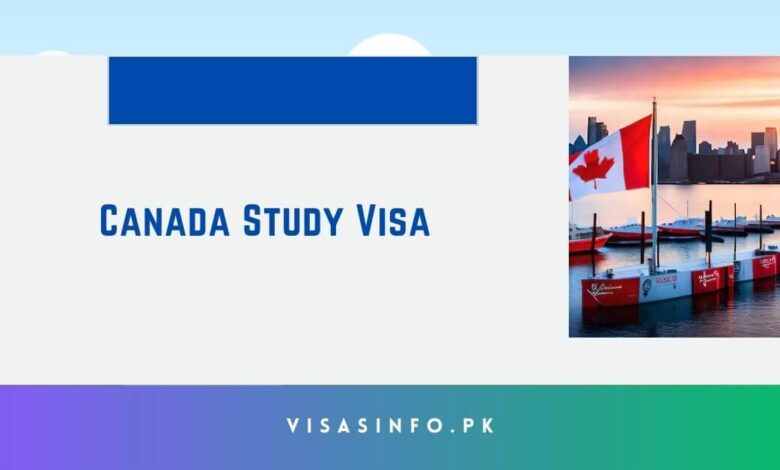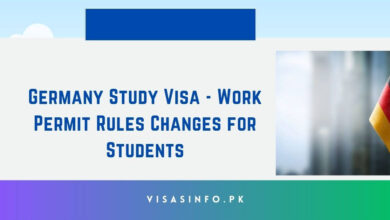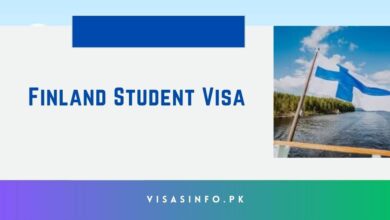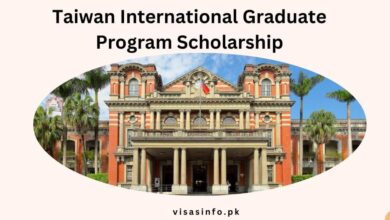Canada Study Visa 2024 – Complete Guide

You have made a logical decision to continue your academic pursuits in Canada, given the abundance of globally recognized universities. Unsurprisingly, Canada is a highly sought-after destination for international students, given its diverse culture, breathtaking scenery, and exceptional educational system. Nevertheless, the process of obtaining a student visa from Canada has become increasingly challenging in recent years.
All the information necessary to achieve a perfect score on your initial application for a student visa to Canada will be provided in this guide.
Visa Requirements for Students in Canada
You have to gather the necessary documents and follow a set of sequential steps before you can start the application process to study in Canada. The essential preconditions are as follows:
1. Acceptance Proof from a Designated Learning Institution (DLI)
Before commencing studies in Canada, it is imperative to obtain an acceptance letter from a Designated Learning Institution (DLI). Accreditation is granted to this postsecondary educational institution. A Certificate of Acceptance (CAQ) from the provincial government is also required if you intend to pursue your education in Quebec.
2. Valid Passport
Your passport must remain valid for the duration of your visit to Canada. Additionally, two passport-sized photographs are required.
3. Proof of Sufficient Funds
It will be necessary for you to demonstrate that you are capable of financially supporting yourself and any accompanying family members throughout your academic career in Canada. This entails furnishing information regarding your bank account in Canada, bank statements for the previous four months, and any records of student loans that you may have obtained from a financial institution.
4. Purpose Statement
Provide a rationale for your request for study permission, even though it is optional. You are permitted to work part-time on campus while pursuing a full-time education if you possess a valid study permit. Additionally, it is possible to renew a permit in Canada without departing the country.
5. Medical Examination
Depending on the nature and duration of your stay in Canada, a medical examination may be necessary to ascertain your medical eligibility. Typically, a medical examination is not necessary for tenure of less than six months, except for individuals who intend to pursue employment in specific professions.
6. Additional Requirements
Student entrance into Canada may necessitate the acquisition of a temporary residence visa or an Electronic Travel Authorization (ETA) contingent upon specific circumstances.
Benefits of a Canada Study Visa
- World-Class Education: Canada is home to some of the world’s most prestigious universities and institutions, which offer a wide variety of programs and high-quality education. Access to exceptional academic and research opportunities is provided by studying in Canada.
- Work Opportunities: International students are permitted to work part-time on or off campus while pursuing their education. This can assist students in acquiring valuable work experience, supporting themselves financially, and assimilating into Canadian society.
- Postgraduate Work Permit (PGWP): Graduates from eligible institutions may apply for a Postgraduate Work Permit after concluding their studies. This permit enables them to work in Canada for a period of up to three years. This employment experience may prove advantageous in the pursuit of permanent residency.
- Studying in Canada: can serve as a preliminary step toward permanent residency. A student’s application for permanent residency can be improved by the Canadian work experience they acquire through a PGWP, which is eligible for programs such as Express Entry or Provincial Nominee Programs (PNPs).
- Cultural Diversity: Canada is renowned for its multicultural environment, which offers international students a welcoming and inclusive experience. This diversity enhances the educational experience and assists students in the development of global networks.
- Canada is renowned: for its welcoming attitude toward international students, high quality of life, and safety. Toronto, Vancouver, and Montreal are cities that provide a high standard of living and vibrant student communities.
- Health Insurance: Numerous provinces provide health insurance to international students, guaranteeing that they have access to medical care during their time in Canada.
- Family Opportunity: In certain circumstances, international students are permitted to bring their spouse and dependent children to Canada. The spouse may be eligible for an open work permit, which would enable them to work while the student is participating in their studies.
- Networking and Career Opportunities: Students in Canada have the opportunity to establish connections with industry professionals, engage in apprenticeships, and establish a network that will be beneficial in their future professional pursuits.
- Language Skills: Studying in Canada can enhance one’s proficiency in either English or French, which is advantageous in both personal and professional applications.
- Cultural and Recreational Activities: Students have the opportunity to engage in a variety of cultural, recreational, and outdoor activities, such as exploring the natural grandeur of Canada and attending a variety of cultural events and festivals.
Application Process
The application procedure for a study visa to Canada comprises the following steps:
- An application bundle for a Canada Study Visa may be acquired from the Canadian embassy or consulate in your region of residence, or from the website of Citizen and Immigration Canada (CIC). The application packet will contain instructions on how to proceed.
- Application Completion: Thoroughly complete each application form and affix all necessary documents as specified in the supporting materials.
- You have the option to submit your application either online or offline through the CIC website. Ensure that all essential documentation, including the introduction letter, is readily accessible.
- To register for a study permit in Canada, a $150 application fee is necessary. Ensure that you pay this fee in conjunction with your application.
Check Also: Canada Study Visa Update for International Students – Check here
Study Visa Fees for Canada
Proof of sufficient funds is required to establish your capacity to finance your education in Canada. The expenses are classified as follows:
The application fee for a study permit is $150 Canadian. To cover living expenses for a year spent outside of Quebec, Canada advises that individuals allocate a minimum of $10,000, and an additional $11,000 for the same duration within Quebec. The number of family members will increase this sum.
It is possible to increase your likelihood of obtaining a study permit for Canada by adhering to these procedures and submitting the requisite paperwork and funds.
Useful External Links
Your goal of attending school in this educationally advanced and stunning country can be realized if you meticulously prepare your application and adhere to the application process. Studying in Canada has the potential to alter one’s life trajectory. Please do not hesitate to contact us with any inquiries or feedback you may have; our objective is to provide you with the assistance you require as you continue your education in Canada.
Frequently Asked Questions
-
How much money do I need for a study visa in Canada?
For Indian students, the Embassy fee for a Canada study visa is CAD 150 (approximately INR 9,296). A Can
-
Is it easy to get a student visa in Canada?
It’s a simple process but is important to get right. Make sure you leave enough time to get it done and avoid disappointment. You may also need a visa, even once you’ve completed the study permit. It depends on where you’re applying from and what you’ll be doing in Canada.
-
How many years is a Canada study visa?
If you’re taking prerequisite courses,. If your school asks you to take courses before they accept you into the main program (you have conditional acceptance), your study permit will be valid for the length of those courses plus 1 year.



